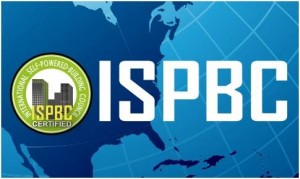
International Self-Powered Building Council (ISPBC) is an international organization based in Washington, D.C. with worldwide chapters and members comprised of:
- Developers
- Builders
- Architects
- Property owners
- Renewable energy companies
- Engineers
- Designers
- Nanotechnology companies
- Green building material manufacturers and suppliers
The concept and terms “SPB” and “BUILDING2.0”, were coined in 2006 by RSI Energy Group Chairman and Chief Strategist Martin Pierce when RSI PV-Windows and other SPB products were launched as components to the SPB, leading to the founding of ISPBC.
ISPBC is dedicated to the global deployment of Self-Powered Building (SPB): a power generating, energy-efficient and economically superior Building 2.0 with a sophisticated approach to urban design.
ISPBC seeks to achieve this by combining the most advanced photovoltaic (PV) and other renewable energy innovations with cutting edge building technologies and design to provide stylish and seamlessly integrated modern buildings.
ISPBC believes that all future buildings will be fully or partly self-powered within ten years. SPBs will be designed and built as green power plants using integrated, power-generating building materials. These energy-independent buildings can be interconnected to form energy cloud networks which provide connected communities enhanced energy security, and reduce peak load demand on the utility grid. These localized networks can be a solution to massive power outages, like the recent one in India that affected 670 million people, roughly 9% of the world population.
ISPBC believes that Self-Powered-Building (SPB) can:
- increase and preserve property value,
- reduce total cost of ownership,
- lower operating costs,
- assure higher occupation rates,
- reduce monthly cost of living,
- provide longer lifespan for the building with healthy indoor air,
- reduce greenhouse gas emissions and
- make building owners/occupants exempt to future energy price increases
ISPBC has a progressive and practical action plan to push and drive SPB innovations by providing the worldwide building industry and consumers renewable energy services, critical resources and support, and by making reasonably priced products accessible to conventional builders.
Commercially, SPB is projected to be a $50 billion global industry by 2015. SPB projects accelerate investments in new technology creating opportunities for new companies.
The mass adoption of SPBs will benefit future generations by enabling economic growth with greater energy security, less pollution, and they have an overall positive impact on climate change.




